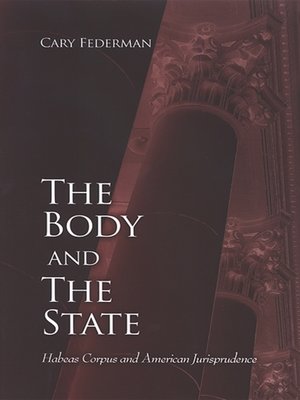The Body and the State
ebook ∣ Habeas Corpus and American Jurisprudence · SUNY series in American Constitutionalism
By Cary Federman

Sign up to save your library
With an OverDrive account, you can save your favorite libraries for at-a-glance information about availability. Find out more about OverDrive accounts.
Find this title in Libby, the library reading app by OverDrive.



Search for a digital library with this title
Title found at these libraries:
| Library Name | Distance |
|---|---|
| Loading... |
Traces the history of the writ of habeas corpus and its influence on federal-state relations.
The writ of habeas corpus is the principal means by which state prisoners, many on death row, attack the constitutionality of their conviction in federal courts. In The Body and the State, Cary Federman contends that habeas corpus is more than just a get-out-of-jail-free card-it gives death row inmates a constitutional means of overturning a jury's mistaken determination of guilt. Tracing the history of the writ since 1789, Federman examines its influence on federal-state relations and argues that habeas corpus petitions turn legal language upside down, threatening the states' sovereign judgment to convict and execute criminals as well as upsetting the discourse, created by the Supreme Court, that the federal-state relationship ought not be disturbed by convicted criminals making habeas corpus appeals. He pays particular attention to the changes in the discourse over federalism and capital punishment that have restricted the writ's application over time.







